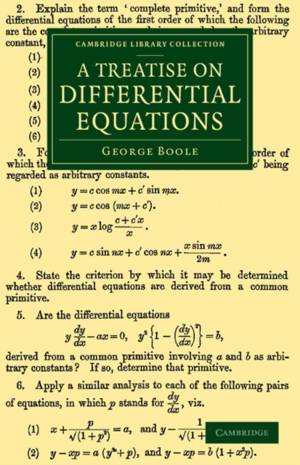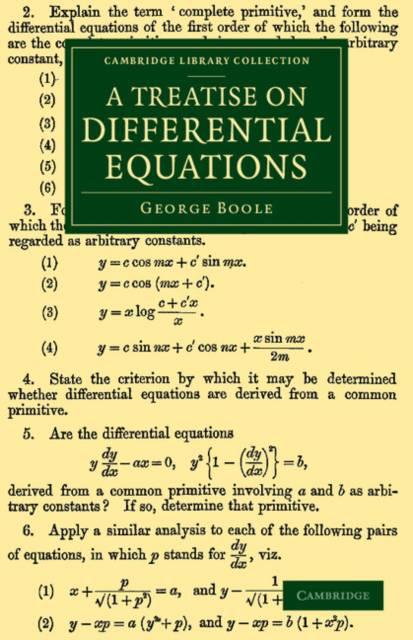
- Afhalen na 1 uur in een winkel met voorraad
- Gratis thuislevering in België vanaf € 30
- Ruim aanbod met 7 miljoen producten
- Afhalen na 1 uur in een winkel met voorraad
- Gratis thuislevering in België vanaf € 30
- Ruim aanbod met 7 miljoen producten
Zoeken
Omschrijving
The need to support his family meant that George Boole (1815-64) was a largely self-educated mathematician. Widely recognised for his ability, he became the first professor of mathematics at Cork. Boole belonged to the British school of algebra, which held what now seems to modern mathematicians to be an excessive belief in the power of symbolism. However, in Boole's hands symbolic algebra became a source of novel and lasting mathematics. Also reissued in this series, his masterpiece was An Investigation of the Laws of Thought (1854), and his two later works A Treatise on Differential Equations (1859) and A Treatise on the Calculus of Finite Differences (1860) exercised an influence which can still be traced in many modern treatments of differential equations and numerical analysis. The beautiful and mysterious formulae that Boole obtained are among the direct ancestors of the theories of distributions and of operator algebras.
Specificaties
Betrokkenen
- Auteur(s):
- Uitgeverij:
Inhoud
- Aantal bladzijden:
- 518
- Taal:
- Engels
- Reeks:
Eigenschappen
- Productcode (EAN):
- 9781108067928
- Verschijningsdatum:
- 21/08/2014
- Uitvoering:
- Paperback
- Formaat:
- Trade paperback (VS)
- Afmetingen:
- 140 mm x 216 mm
- Gewicht:
- 648 g

Alleen bij Standaard Boekhandel
+ 222 punten op je klantenkaart van Standaard Boekhandel
Beoordelingen
We publiceren alleen reviews die voldoen aan de voorwaarden voor reviews. Bekijk onze voorwaarden voor reviews.











